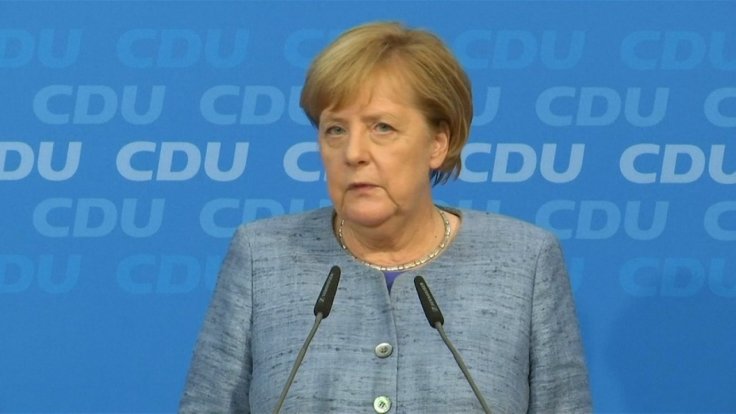German Chancellor Angela Merkel said that Germany is willing to compromise on the European recovery fund at the upcoming summit of the European Union (EU) leaders. "We will of course go to Brussels and the German side has a certain stock of willingness to compromise," Merkel said on Tuesday during a press conference ahead of a preparatory meeting with visiting Spanish Prime Minister Pedro Sanchez, Xinhua news agency reported.
"It would be desirable to reach a quick result but I don't know whether there will be a success on Friday and Saturday," added Merkel, saying that time is pressing and the EU must act in an unusual, unprecedented situation and learn from the coronavirus pandemic.
Sanchez said that July must be the month of decision and Spain would do everything for that. "If we postpone the agreement again, we will postpone the reconstruction. And if we postpone reconstruction, the crisis will be even more serious."
Merkel Willing to Compromise EU Recovery Fund

Sanchez also predicted difficult negotiations and called on the other EU members to work on an agreement. At the same time, Sanchez emphasized that the EU members have different visions of where Europe should be headed, and each one of these is legitimate. Back in May, the European Commission proposed a 750-billion-euro (US $852 billion) recovery fund to help the bloc emerge from the pandemic-triggered economic crisis. This fund will be the focus of the special EU summit on July 17 and 18 in Brussels.
According to the plan, 500 billion euros of this debt-financed recovery fund are to be granted as grants and 250 billion as loans. However, the Netherlands, Sweden, Denmark and Austria oppose providing the aid as grants, and argue that the aid must be linked to reforms.
European leaders are busy visiting each other to prepare for the summit, with Germany, the current EU Council presidency, in the focus. Merkel met last week with Dutch Prime Minister Mark Rutte, and on Monday with Italian Prime Minister Giuseppe Conte. Italy and Spain are among the countries most affected by the coronavirus pandemic in Europe and both need financial aid.








